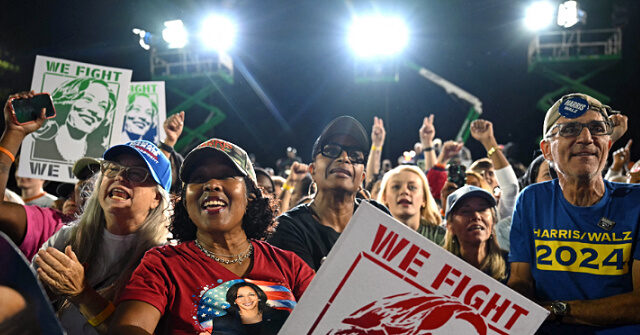As the 2024 election approaches, numerous Democratic-aligned organizations are employing unconventional methods to increase voter turnout among younger demographics. These tactics, characterized by some as “downright dystopian,” include monetary incentives such as rent checks, gift cards, and even parties featuring “pole dancers.” The aggressive strategies have sparked debates about ethics and fairness, particularly as the Department of Justice (DOJ) focuses scrutiny on pro-Trump efforts, including a campaign fronted by Elon Musk that involves a substantial cash sweepstakes for voters. This situation underscores a growing concern about the methods being used to engage voters, especially in swing states pivotal for the upcoming presidential election.
In many urban centers, including Philadelphia, organizations like The Voter Project have orchestrated events that blend entertainment with voter registration drives. A notable example includes $2,000 rent giveaways and free shopping opportunities in exchange for checking voter registration status. The group has also created culturally relevant promotional materials, such as comic books aimed at young voters, while also distributing substantial community grants to incentivize participation in early voting. The overall objective is to galvanize tens of thousands of potential voters, significantly raising the number of those voting by mail and participating in early elections.
Recent reports have revealed that Democratic groups are offering payments of up to $160 to individuals who agree to contact their friends and family regarding upcoming elections. Such initiatives are part of a larger network of left-leaning organizations that operate under the pretense of nonpartisanship but are predominantly funded without public transparency. Critics of this approach, including some on the left, argue that these tactics dangerously flout ethical boundaries and resemble bribery more than legitimate voter engagement. These concerns highlight the lengths to which some organizations will go to connect with younger audiences, relying on attraction through fun, festive events rather than substantive policy conversations.
In an effort to reshape the perception of voting, organizations such as ShowUpStrong24 and Vote for Abortion have introduced community festivals and parties, blending music, food, and entertainment to revitalize interest in civic participation. These events are specifically designed to create an appealing atmosphere around voting, transforming what is typically seen as a formal duty into a more relaxed social gathering. Critics have voiced concerns that such methods further diminish the seriousness of the voting process while primarily targeting populations that may feel disenfranchised or disconnected from traditional political discourse.
While these methods have proved effective, with claims of boosting youth turnout by significant margins in states like Pennsylvania, various voices—including those from opposing political camps—have pointed out the ethical discrepancies in such approaches. Chris LaCivita, a senior advisor to Donald Trump, criticized the methods as desperate and disingenuous, suggesting that Democratic financiers would ultimately offer no real support for minority voters after election time. Such sentiments have led to heightened scrutiny and concern over whether these strategies offer real engagement or simply superficial fixes to deeper political disconnects among young voters.
Simultaneously, the DOJ’s recent actions aimed at scrutinizing Musk’s America PAC highlight the inconsistencies in federal election oversight. Musk’s initiative to offer cash prizes for registered voters has drawn warnings from the DOJ about potential violations of electoral laws, particularly concerning how votes are solicited. Critics, including Republican lawmakers like Senator Tom Cotton, have pointed to the disparate treatment of right-leaning and left-leaning voter engagement campaigns, questioning why similar scrutiny has not been applied to the extensive mobilization efforts by Democratic-affiliated groups. This disparity raises significant concerns about fairness and transparency within the political landscape as the election season draws near, underscoring the need for an even-handed approach to electoral integrity.

